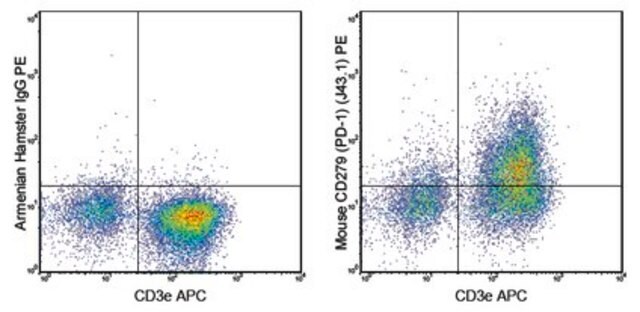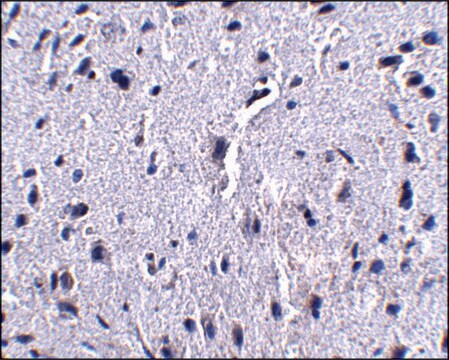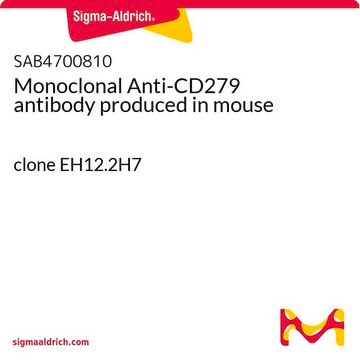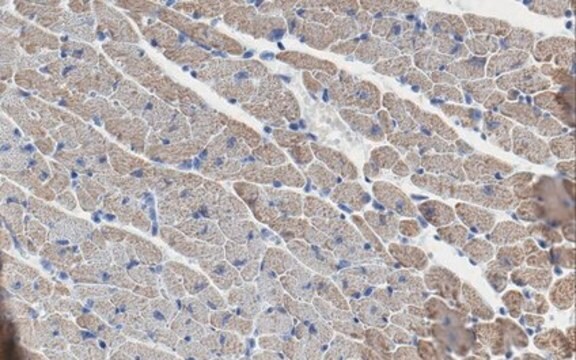MABF556
Anti-CD279 (PD-1) Antibody (mouse), PE, clone J43.1
clone J43.1, 0.2 mg/mL, from hamster(Armenian)
Sinónimos:
Programmed cell death protein 1, Protein PD-1, mPD-1, CD279
About This Item
Productos recomendados
biological source
hamster (Armenian)
Quality Level
conjugate
PE
antibody form
purified antibody
antibody product type
primary antibodies
clone
J43.1, monoclonal
species reactivity
mouse
packaging
antibody small pack of 25 μg
concentration
0.2 mg/mL
technique(s)
flow cytometry: suitable
immunohistochemistry: suitable
immunoprecipitation (IP): suitable
isotype
IgG
UniProt accession no.
shipped in
wet ice
target post-translational modification
unmodified
Gene Information
mouse ... Pdcd1(18566)
General description
Immunogen
Application
Inflammation & Immunology
Quality
Flow Cytometry Analysis: 0.5 µg of this antibody detected CD279 (PD-1) in one million C57Bl/6 splenocytes.
Physical form
Storage and Stability
Disclaimer
¿No encuentra el producto adecuado?
Pruebe nuestro Herramienta de selección de productos.
Storage Class
12 - Non Combustible Liquids
wgk_germany
nwg
flash_point_f
Not applicable
flash_point_c
Not applicable
Certificados de análisis (COA)
Busque Certificados de análisis (COA) introduciendo el número de lote del producto. Los números de lote se encuentran en la etiqueta del producto después de las palabras «Lot» o «Batch»
¿Ya tiene este producto?
Encuentre la documentación para los productos que ha comprado recientemente en la Biblioteca de documentos.
Nuestro equipo de científicos tiene experiencia en todas las áreas de investigación: Ciencias de la vida, Ciencia de los materiales, Síntesis química, Cromatografía, Analítica y muchas otras.
Póngase en contacto con el Servicio técnico








